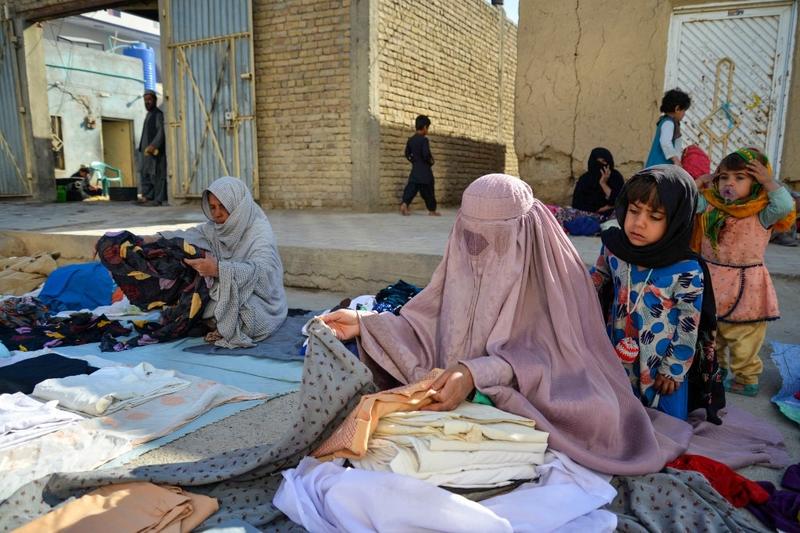 Afghan burqa-clad women sell clothes along a street in Kandahar on March 7, 2023. (PHOTO / AFP)
Afghan burqa-clad women sell clothes along a street in Kandahar on March 7, 2023. (PHOTO / AFP)
KABUL - Female employment in Afghanistan has dropped by a quarter after the Taliban took over the country, according to estimates from the International Labour Organisation (ILO), which said the fall was exacerbated by restrictions on women working and studying.
The ILO said the 25 percent drop in female employment took place by the final quarter of 2022 from the second quarter of 2021, compared with a 7 percent drop for men. The Taliban took over the country in August 2021 as foreign forces withdrew.
"Restrictions on girls and women have severe implications for their education and labour market prospects," said Ramin Behzad, the Senior Coordinator for Afghanistan at the ILO, in a statement accompanying its assessment for 2022 of Afghanistan.
Taliban authorities have barred most girls from high school, stopped women from attending universities and most female NGO workers from working
Taliban authorities have barred most girls from high school, stopped women from attending universities and most female NGO workers from working.
ALSO READ: US judge: 9/11 victims cannot seize Afghan central bank assets
Afghanistan's economy has also been plunged into a crisis that has wiped out jobs. Following the Taliban takeover, foreign governments withdrew development aid and froze the country's central bank assets.
The ILO estimated GDP had contracted by 30-35 per cent across 2021 and 2022.
Taliban officials have called on the international community to unfreeze its assets to ease the country's liquidity crisis and have said they are focused on encouraging trade and investment to create economic self-sufficiency.
Youth unemployment had also shrunk by an estimated 25 percent for those aged between 15 and 24. The ILO noted that total employment had shown some signs of recovery in the first half of 2022, but that it had decreased for young men and all women over the year.
READ MORE: UN aid chief to visit Afghanistan over female aid worker ban
"Some women moved into self-employed activities, such as farming...or repairing clothes, thereby contributing to household income and preventing female employment from falling by even more," the ILO's report said.


